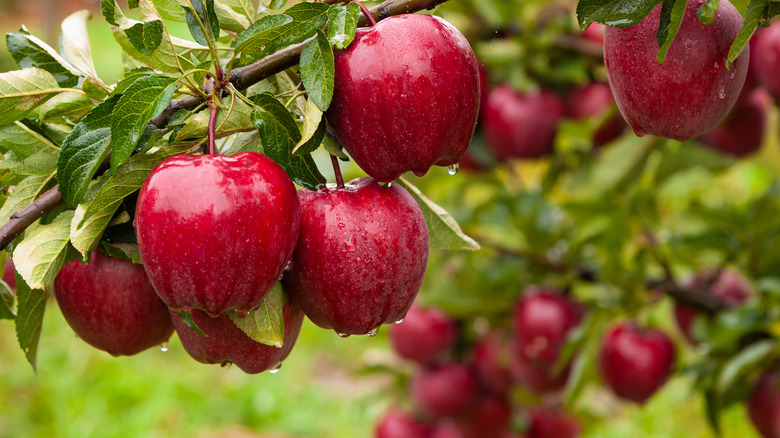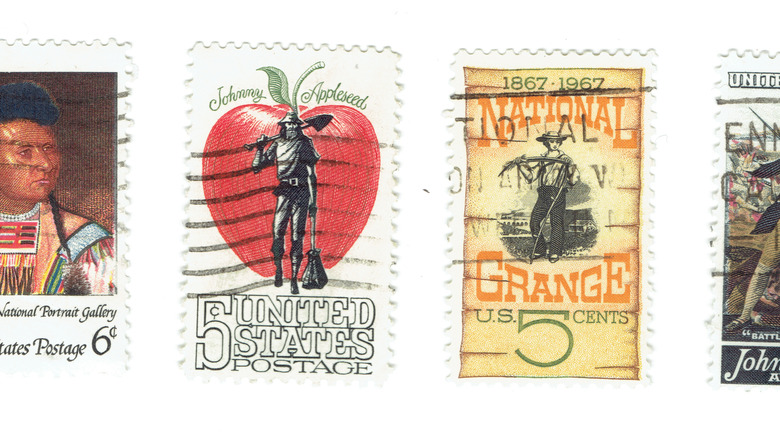Was Johnny Appleseed A Real Person?
You've probably heard his story as a kid. A barefooted nomad whistles hymns as he walks, tossing apple seeds along the way. Wherever he goes, an apple orchard grows, and those who follow his path can enjoy fresh, delicious apples to keep them nourished as they travel. Johnny Appleseed is just one of the characters who make up the fantastic mythos of American history, joining the likes of heroes such as Paul Bunyan, John Henry, and Casey Jones as larger-than-life giants in the story of pioneers, lumberjacks, and railroad workers.
There is, however, some truth to the stories of these great American folk heroes. John Henry, for example, may not have single-handedly beaten a steam-powered drill in a digging contest, but the Virginia Museum of History and Culture notes that there was a real John Henry who worked in the C&O Railroad's Lewis Tunnel. While Paul Bunyan may not have created the Grand Canyon with the cut of his axe and had a blue ox as a friend, he may have had roots in the escapades of a rowdy French-Canadian logger who worked in a Michigan logging camp (via History). Casey Jones was indeed a real person, too, according to Biography, and while the songs about him may sound fictional, his life and the train crash that claimed it was very much real.
But was there ever really a wandering vagabond who walked the United States with a sack of apple seeds and a legion of cuddly animal friends?
The real man behind the Johnny Appleseed legend
Yes, Johnny Appleseed was a real person. As Taste of Home tells us, Johnny Appleseed, whose real name was actually John Chapman, was a missionary-type character who lived during the early 19th century. Chapman operated around the areas of Pennsylvania, Ohio, and Indiana, becoming a sort of legend for his friendly, peaceful demeanor, love for all living things both man and animals, and of course, his apple seeds.
Ohio History tells us a little more about the personality and life of Chapman. Chapman is described as a gentle man who sought to convert everyone he met, be they settlers or Native Americans, to Christianity, or more accurately, Christianity as taught by the Swedenborgians or the New Church. So great was Chapman's love of nature that he not only would become a strict vegetarian but also refused to have any campfires for fear of hurting insects. Chapman never married or had children, instead dedicating his life to spreading and tilling his apple seeds, traveling, and preaching, with the belief he would see his soulmate in Heaven.
According to Smithsonian Magazine, John's apple trees actually had another purpose: the production of hard apple cider. At the time, apples in America were more popularly used for cider than eating and the trees that grew from John's orchards had apples better fit for cider-making. In the 1920s, during Prohibition, the FBI even cut down a majority of Johnny's trees to prevent people from making hard cider.

